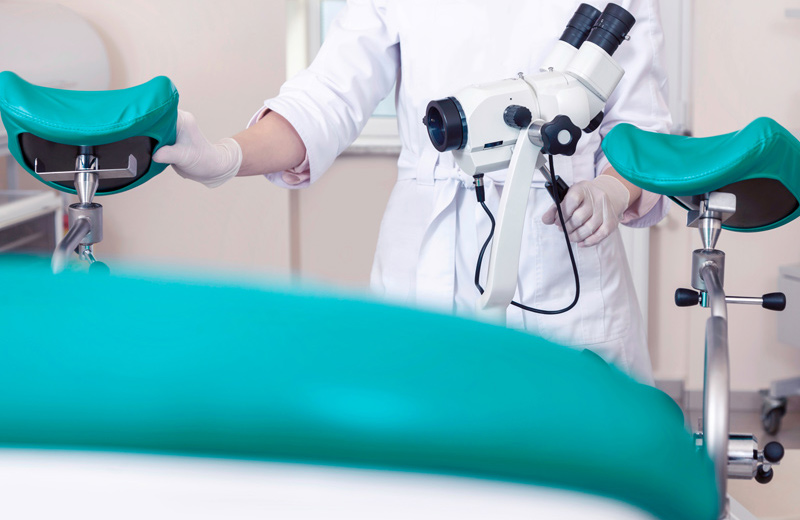GYNECOLOGICAL REVIEW
Gynecological cancer prevention.
The purpose of a gynecological examination is to prevent any type of problem of the female reproductive system as well as to diagnose as early as possible the most prevalent gynecological pathologies, such as breast or cervical cancer, so it is important to do it regularly.
In our practice we strive to help our patients by offering adequate time and a pleasant environment so that women can feel heard and have the opportunity to express their doubts and questions before being explored.

The exploration is essentially carried out in 3 parts:
- Physical examination and video colposcopy of the external genitalia, vaginal canal and cervix. During this exploration, a cytological sample is taken (popularly “smear test”) to assess the cells of the cervix and rule out precancerous changes. In addition to cytology, evaluation of the cervix with a video colposcope is essential to diagnose cervical cancer and its precursor lesions. Video colposcopy itself does not cause more discomfort than any other speculum exam. It can be done safely even if you are pregnant.
- Evaluation of the pelvic organs by high resolution transvaginal ultrasound and Doppler ultrasound scan. Gynecological ultrasound scan is a basic examination in any gynecological examination, with it we can study the Uterus, the Fallopian Tubes and the Ovaries. Its objective is to check if these organs are normal or present some anomaly or pathology, information of great importance in gynaecology.
- Physical and ultrasound examination of the breasts.
The examination of the breasts is carried out by means of inspection and palpation, it is very important to detect the presence of cancer early, and is complemented with an imaging examination of the breast.
Breast ultrasound (in women under 40 years of age) and / or Annual mammography from the age of 40, although if there are risk factors (such as breast cancer in the family), it should be done from the age of 35.
In a complete gynaecological examination and depending on the findings obtained, other complementary examinations may sometimes be necessary, such as:
- Request for clinical tests (blood, urine, etc)
- Bone densitometry
- Screening for Sexually Transmitted Diseases (STD / STI)
- TAC
- MRI of the pelvis or breast MRI

BOOKING AN APPOINTMENT
